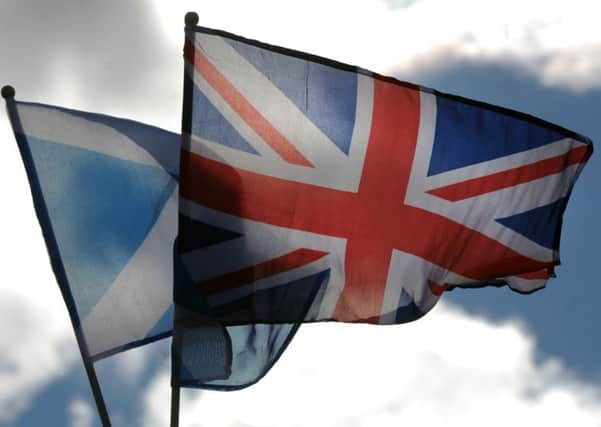Brian McConnachie: Independence is risky business


We have always had our own laws and our own legal system and that is a matter about which we are justifiably proud. Indeed for many months now I have been speaking out against the abolition of one of the cornerstones of our legal system, namely corroboration. However, we have always been able to benefit from being part of the UK as well. That matters for our economy, our public services, our defence, and for many other matters. It strengthens our legal system too. Some of the most influential decisions in recent times have been from the UK Supreme Court with a number of distinguished Scottish judges sitting there.
Advertisement
Hide AdAdvertisement
Hide AdNowadays, of course, most Scots law issues are dealt with in the Scottish Parliament in Edinburgh. Our legal system now has its own legislature as well. Devolution has worked, and it is popular with Scots who recognise that it gives us the best of both worlds. We have the ability to make decisions on domestic matters–everything from the criminal law to health and education– but at the same time we have access to the economic strength of the UK, supporting our financial system, and indeed our public services.
Independence would necessarily sever many of the links with the rest of the UK, including the political connections. We would lose the positive benefits those connections bring. The strength of the wider UK economy, and the sharing of resources which guarantees pensions, benefits and public services.
Europe, World affairs
As part of the UK we are able to play a role in the decision making of major European and world organisations. It is difficult to imagine a new country having the ability to exercise any real influence. That is the positive case for staying in the UK.
However, independence carries risks - including legal risks. Scotland would set out as a new state, and would have to make its own way in the world. I can see why for some people that is an attraction. However it brings real uncertainties. Of course the UK would recognise Scotland’s independence, and other countries would too, but finding our place in the world, and in international organisations like the European Union, may be nothing like as straightforward as the Yes campaign would have us believe.
There is real legal uncertainty about how Scotland would become an EU member state, and it appears real political uncertainty about how other member states would look upon this. It seems to me quite likely that membership would take place but what we cannot expect is to slide automatically, with just minor treaty amendments, into membership on the terms and conditions the UK presently enjoys.
There are many areas which appear not to have been well thought through. A bad example of the legal incoherence of the Scottish government’s position is their claim that it would be possible, as an EU member state, to discriminate uniquely against students from the remaining parts of the UK, while offering free education not just to Scots but to students from every other member state. No serious legal commentator thinks this is anything other than nonsense.
‘We do not need to take risk’
In my opinion we do not need to take any of these risks and deal with these uncertainties. Scotland already has the best of both worlds as a nation with a great deal of autonomy in a multi-national state that is the United Kingdom. As lawyers and as citizens, our job is to explain as clearly as possible the benefits we already have as part of the UK, and the positive case for saying no thanks. That is what we intend to do as Lawyers Together.
• Brian McConnachie QC is a Senior Counsel at Black Chambers, and former Principal Advocate Depute at the Crown Office